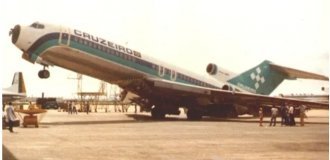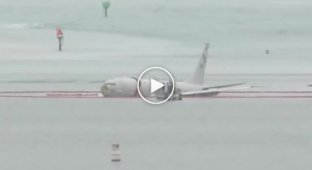From 1 to 36: What do the numbers on the runway mean? (4 photos)
Passengers, when boarding, can see the characteristic markings indicated on the airfield runways. It includes huge numbers from both ends of the runway. Many people consider them simply the number of the lane in a given port. 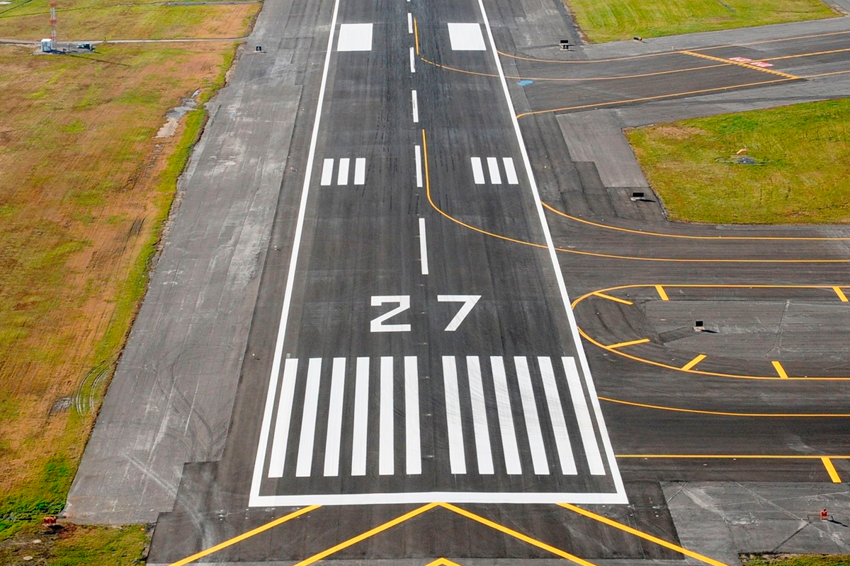
Runway markings
But, firstly, the numbers do not match the number of tracks at the airfield. They range from 01 to 36. The numbers are always two digits.
Secondly, different values are indicated at different ends of the same strip. For example, one has 12, and the other has 30. And it happens that at one airport there are several tracks with the same numbers. So it can't be a lane number.
Why do we need huge numbers on the runway?
What do they mean?
I can see everything from above
Passengers at the airport, waiting to board, see characteristic markings on each runway. They are all quite large.
These signs are intended for pilots of landing aircraft and are designed to be visible from the air.
Of course, electronics play a key role in controlling aircraft today. But to be on the safe side, they must also put the necessary information directly on the strip. 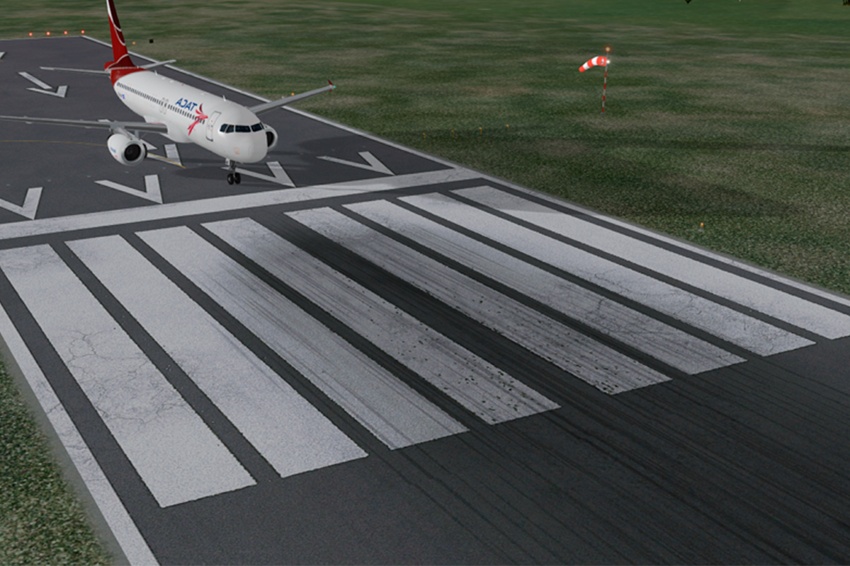
Start of runway
First there are transverse stripes, reminiscent of a zebra crossing.
But pedestrians are clearly not provided for here. These stripes help the crew visually navigate how wide the strip is. 4 strokes - 18 meters, 6 - 23, 8 - 30.
Then comes the big double digits. Sometimes a Latin letter is adjacent to it.
A group of signs can complete the marking. Three strokes on each side - two large squares - two strokes on each side.
This is a visual mark of the best option for the landing site, that is, the first contact of the wheels with the airfield.
The markings are duplicated at both ends of the strip.
But what do the numbers mean?
Numbers 3 by 9
The white numbers are large, 3 by 9 meters.
They mean the degree of angle of the strip relative to the magnetic poles of the earth.
If you draw a straight line between the latter, then a particular strip is located in relation to them at an acute or obtuse angle. 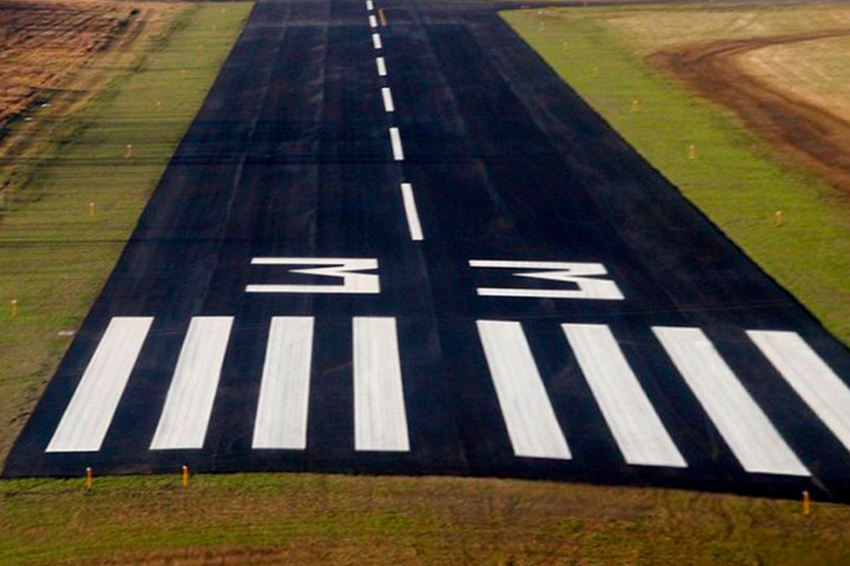
Minimum - 0 degrees, coincides, runs parallel. Maximum - 360 degrees, parallel, but in the opposite direction. In most cases, the deflection angle value is rounded to 10.
In essence, the numbers on the stripe liken it to a compass needle. If there are problems with the instruments, this information will help pilots navigate during an emergency landing.
For visual convenience, the angle value is divided by ten.
That is, instead of 10 degrees they indicate 01, and instead of 360 - 36.
At the other end of the strip, the value will be the opposite. For example, if on one side it is 06, that is, 60 degrees, then on the other side it is 60+180=240 degrees or 24 on the marking. 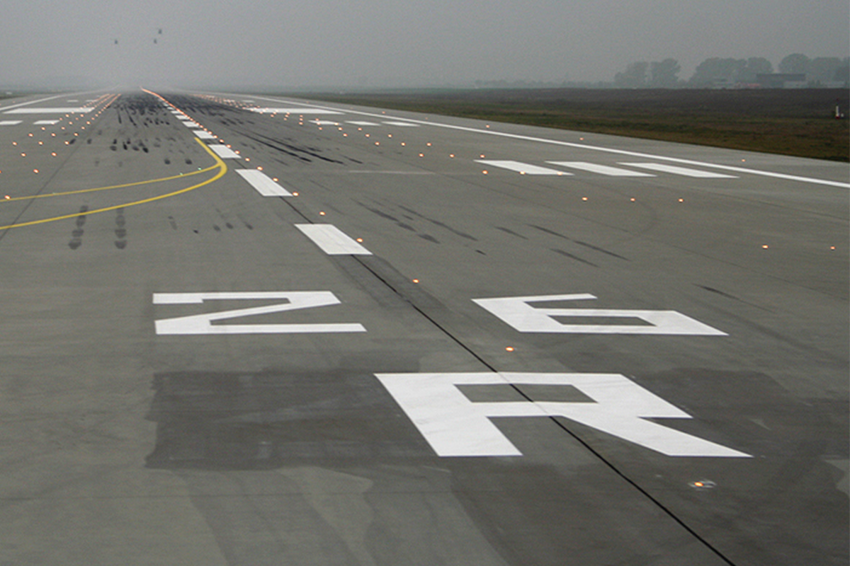
If there are several parallel lines at the airport, then next to the numbers there will be the letters R, L, C, corresponding to the words - right, left, center.
Just in case, such markings indicate the information pilots need to guide their descent and landing in case something goes wrong with the instruments.







